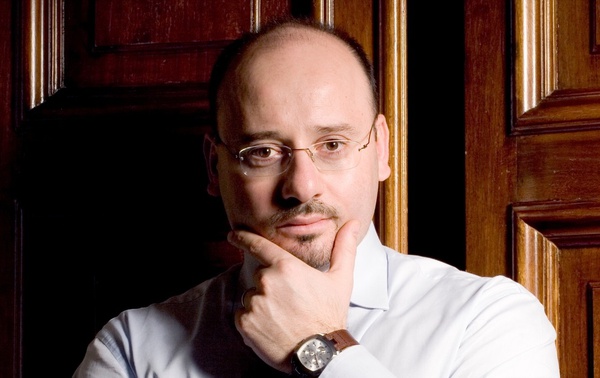Writing / Blog
Opt-out mediation model cuts real estate litigation in Italy by almost 50%

Giuseppe de Palo
Ombudsman at United Nations Funds and Programmes
(Data source: Italian Ministry of Justice)
The many goals of a mediation statute
Supporters argue that among several other societal and individual benefits, mediation can curb the number of cases flooding civil courts, which are often overcrowded and overworked. One of the goals of most mediation statutes is in fact to reduce the amount of court litigation (by way of example, article 1 of the 2008 EU Mediation Directive aims at “encouraging the use of mediation … by ensuring a balanced relationship between mediation and judicial proceedings”). Critics of mediation are not so sure that mediation can, or should, do this. Moreover, they argue, it is difficult to find reliable mediation data.
Numbers are out, and clear
That is not the case in Italy – the only country of the 47 Members of the Council of Europe where official government statistics on mediation do exist (https://webstat.giustizia.it/Analisi%20e%20ricerche/Mediazione%20Civile%20-%20Anno%202018%20(primo%20semestre).pdf). Indeed, today the country’s most prominent financial newspapers (“Il Sole 24 Ore”, at p. 9) published an article showing that, over the last four years, the Italian “opt-out mediation model” has cut the number of new litigated cases by 30%, reaching almost 50% in certain types of disputes such as those involving real estate (of note: the same statistics show that the number of disputes not subject to mediation fell by only 15%, possibly reflecting the ongoing economic struggle of the country). A number of the “vanishing” court cases get mediated successfully. Others are settled directly by the parties, perhaps to avoid mediation. Finally, of course certain people may simply decide to forego litigation and do nothing altogether (that this might happen because litigation would require litigants to mediate first seems however unlikely).
The “opt-out mediation model”, in a nutshell
Under Italian law, plaintiffs in certain types of disputes (real estate, medical malpractice, banking contracts and others), before judicial proceedings can be issued must convene defendant(s) in front of a mediation organization registered with, and accredited by, the Ministry of Justice. In these cases, failure by the plaintiff to convene the defendant for mediation will cause the court action to stop; failure by the defendant to attend the first mediation session may result in financial penalties as well as in other negative consequences. The unique peculiarity of the Italian mediation model is perhaps the following: to avoid the foregoing consequences, litigants are made to participate in a first meeting with the mediator. This meeting is not a mere mediation information session, but rather part of the mediation itself. To preserve the voluntary nature of mediation, any party can easily “opt out” from the first mediation without any negative consequences at the trial that (presumably) will follow. Mediation will continue only if all parties so want (for a short video explanation of the Italian mediation model see: https://www.mediate.com/articles/urso-italian-model.cfm)
More mediations and settlement agreements than in any other EU country
Even though it applies to disputes representing around only 10% of all Italian civil litigation, this model generates over 200,000 mediations yearly - many more than in any other EU country. When the parties agree to continue after the first meeting, settlement is achieved in 43% of the cases. A stunning percentage, since lawyers could have settled those same disputes by direct negotiation if they had wanted to avoid mediation altogether, but evidently they could not settle without the help of a third-party neutral. Only the “necessity” of seeing a mediator (albeit briefly) as a pre-condition to filing in court led to an amicable solution.
A great deal of money at stake
In 2014, the EU Parliament “Rebooting the EU Mediation Directive” study calculated that, if mediation was experimented in all cases and settled 50% of them, European companies and businesses could save tens of billions of Euros annually (http://www.europarl.europa.eu/thinktank/en/document.html?reference=IPOL-JURI_ET(2014)493042). Instead of a “pure” mandatory mediation model, the Rebooting study proposed the opt-out model, as it preserves the unrestricted voluntariness of engaging in (and paying for) a full-blown mediation while mandating simply to show up at its first meeting (paying just a modest fee, in case parties decide to stop mediation there). The study’s justification for imposing the “showing up” is that an individual’s litigation preferences must yield to the collective interest in the better functioning of a country’s civil litigation system. This is especially true in the EU, where the litigants’ court fees cover on average only 20% of the overall cost of the civil justice system.
“Nudging” people to achieve societal goods, including more mediations
Prof. Richard Thaler, co-author of the best-selling book “Nudge – Improving Decisions about Health, Wealth and Happiness”, received the 2017 Nobel prize for his contribution to Behavioral Economics, “exploring the consequences of limited rationality, social preferences, and lack of self-control ”and “how these human traits systematically affect individual decisions as well as market outcomes” (https://www.nobelprize.org/prizes/economic-sciences/2017/summary). The idea of “nudging” people to mediate more, by virtue of various mechanisms, including opt-outs or mediation “pledges”, is not at all new in the alternative dispute resolution field. At the World Bank, for example, employees intending to sue their employer have since 2008 known that, if they ask their employer to mediate, the Bank is committed to participate. Recently, the Office of the Ombudsman for United Nations Funds and Programmes has proposed a similar approach within the five UN agencies it serves. (http://fpombudsman.org/wp-content/uploads/2018/05/Annual-Report-2017.pdf, pp. 12-14). Still, many people today remain firmly convinced that the only option is voluntary mediation or mandatory mediation. The opt-out mediation model, and those based on pledges to try to mediate a dispute, in appropriate cases, offer a more thorough analysis of possibilities and appear to produce better results.